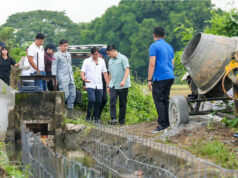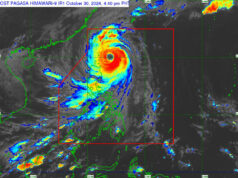LEGISLATORS have asked the National Electrification Administration (NEA) to allow the private sector to compete in areas in the Philippines where electric cooperatives have failed to deliver despite having the exclusive franchise to operate.
Sen. Loren Legarda, who chairs the Senate finance committee, asked NEA Administrator Edgardo R. Masongsong to come up with a policy on how the agency can improve the delivery of electricity to unserved and underserved communities, including those under electric cooperatives that are unwilling to waive their franchises despite being “inefficient and incompetent” in carrying out their obligation.
“We just want to do it at the least cost to government [and] for government not to hinder the private sector,” Ms. Legarda said during an inquiry on NEA’s budget for 2018.
Mr. Masongsong said NEA, the government agency tasked to oversee the country’s electric cooperatives, had proposed a budget of P9.63 billion for next year but the Department of Budget and Management recommended P4.9 billion as contained in the national expenditure program.
“Why would we spend billions of public funds which are not funded annually when in fact the private sector is willing to do this at zero cost to government and consumers,” she said.
In the same hearing, Sen. Sherwin T. Gatchalian said electric cooperatives block proposals by private entities to put up microgrids, or energy systems that are capable of operating independently from the main power grid.
Mr. Gatchalian, chairman of the Senate energy committee, said although regulations allow a qualifed third party, or QTP, to take over areas unserved by electric cooperatives, doing so would require a waiver from the franchise owners.
“What if they don’t want to waive?” he said, adding that he “encourage” Mr. Masongsong “to come up with this policy and submit to us and share to us this policy.”
“There are many who want to come in to serve the unserved area,” he said.
Ms. Legarda said if cooperatives refuse to waive their exclusive franchise even if they are inefficient, they are holding those in remote areas hostage. She said NEA should intervene in those cases.
“Once a cooperative starts deviating from [its] mandate, NEA can intervene to protect the people’s interests,” she said. – Victor V. Saulon



